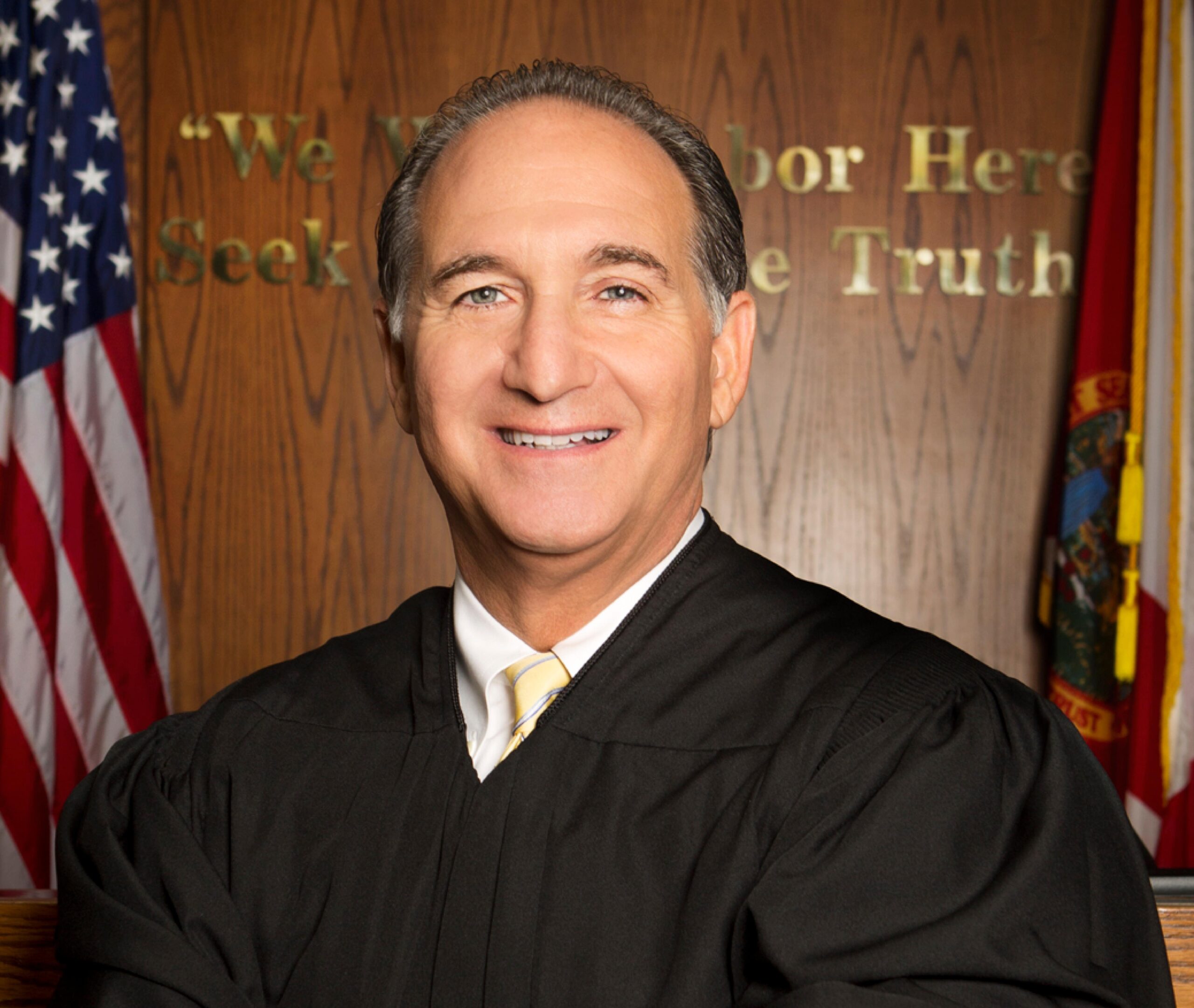
In January 2000, Judge Steven Leifman was trying to hear the case of a man accused of a minor offense. It was not going well.
The defendant, long ago a student at Harvard, was covering his ears. He shook back and forth, screaming. He claimed that the couple in the courtroom, his parents, had been sent by the CIA to kill him. His real parents, he insisted, had died in the Holocaust.
He was having a psychotic episode. And not his first. The defendant had a religious fixation, believing he needed to be closer to God. In Israel, he had been caught running naked through the Orthodox Jewish sections of Jerusalem. Israel deported him back to the United States.
Now he was Judge Leifman’s problem.
The NJC alumnus, faculty member and associate administrative judge of the Miami-Dade County Court ordered psychological evaluations. Diagnosis: late-onset (among people 40 to 60 years old) schizophrenia. That made him incompetent to stand trial. But under the system then in place, the judge had no ability to order any psychiatric treatment.
“I had to release him back to the street, psychotic and eminently dangerous to himself and others,” the judge recalls. “None of us become judges or lawyers or professionals to be part of that kind of problem.”
The frustration led him to partner with others in south Florida to create the 11th Judicial Circuit Criminal Mental Health Project for Miami-Dade County. The program diverts non-violent misdemeanor and felony defendants with mental illnesses away from the criminal justice system and into appropriate mental health facilities. It also provides training to police on how to identify people in a mental health crisis and deescalate confrontations.
The project has become a model for justice systems around the country with several other NJC alumni joining in the effort. Judge Katheryn Zenoff of the Illinois Appellate Court is co-chair of the National Judges and Psychiatrists Leadership Initiative for Criminal Justice and Mental Health. Others alumni advocates include Judge Robert Wonnell of the Johnson County, Kansas, District Court and Circuit Court Judge Nan Waller in Portland, Oregon.
Inspired by Leifman’s approach, Denver Probate Court Presiding Judge Elizabeth Leith launched a special competency docket in 2022 to help address Colorado’s huge backlog of such cases that had led to the state being fined.
“What I’m doing is trying to get the same thing going in Denver that he’s (Judge Leifman) done,” she says.
A lot of people in the criminal justice system are. And it’s not hard to see why.
Since the project’s launch in 2000, the number of arrests in Miami-Dade County has fallen from 118,000 a year to 53,000, Judge Leifman says. The jail population has dropped 7,400 to 4,400, and the county was able to close one of its three main jails.
Judge Leifman says an estimated 92 percent women in jails and prisons have serious mental health issues due to histories of trauma—mostly with sexual abuse as young girls. For men the figure is 75 percent.
Cases like Justin Volpe encourage him that the Mental Health Project is on the right track. Volpe, a peer specialist for the project, is himself a graduate of the program. In the early 2000s, he was experiencing panic attacks, anxiety attacks, paranoia, and hallucinations. He’s now been in recovery for 11 years and sober for six.
“It’s a gift for us to be able to see people you know go into recovery, get better and have lives,” Judge Leifman says. “It’s been an amazing journey.”

Hon. Diane J. Humetewa, the first Native American woman and the first enrolled tribal member to serve as a ...

Retired Massachusetts Chief Justice Margaret H. Marshall has been selected as the 2024 winner of the presti...

Dear Gaveliers Fans: I am delighted to announce the appointment of our first Gaveliers coaches, profiled...

Fans, I could not be more proud of the work our players put in over the summer. The difference between h...

As the 2024 Election moves in to its final weeks, just over half of trial judges who responded to a survey ...